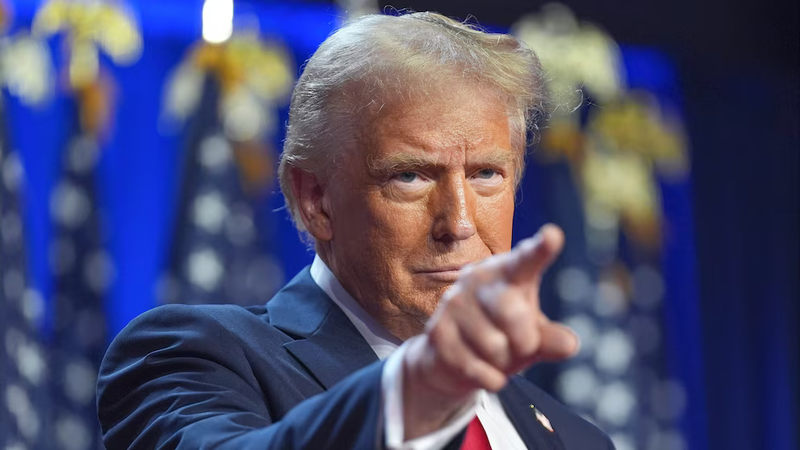President Donald Trump recently told NBC News he’s “not joking” about seeking a third term, despite the U.S. Constitution’s 22nd Amendment clearly limiting presidents to two terms. He claimed “there are methods” to make it happen, though he emphasized that it’s “far too early to think about it.”
When asked if he’s seen plans that would allow it, Trump pointed to the possibility of Vice President JD Vance running and handing power back to him. “That’s one,” he said. He declined to share further options, replying simply: “No.”

Such statements, even if speculative, have drawn sharp criticism. Constitutional scholars and political analysts warn that floating these ideas undermines the foundation of democratic governance. The 22nd Amendment was passed after Franklin D. Roosevelt’s four terms to prevent the consolidation of executive power — a principle central to American democracy.
Changing it would require immense political will: a two-thirds majority in both houses of Congress or two-thirds of states agreeing to call a constitutional convention, followed by ratification from three-fourths of states. In today’s polarized environment, such a change is highly unlikely — but not impossible if public sentiment is manipulated over time.
Still, Trump’s suggestion finds support among his allies. Rep. Andy Ogles (R-TN) proposed a resolution to extend term limits, and longtime strategist Steve Bannon predicted that Trump could “run and win again in 2028” through legal or procedural maneuvering. Many of Trump’s supporters view term limits as negotiable if the leader is seen as “saving” the nation.
What makes this moment especially precarious is the global context. In 2018, Chinese President Xi Jinping abolished his country's two-term limit, effectively opening the door to lifelong rule. Since then, the Chinese Communist Party (CCP) has intensified efforts to suppress dissent, spread propaganda, and expand its influence globally — including through disinformation campaigns aimed at destabilizing the U.S. from within.
The parallels are troubling. While the U.S. is far from becoming an autocracy, the first step down that path often begins with a popular leader casually challenging long-standing democratic norms. What may seem like political theater can quickly evolve into something more dangerous — especially when citizens become desensitized to authoritarian language.
The CCP actively monitors and exploits fractures in American society, from race relations to political polarization. A weakened faith in democratic processes only benefits adversaries like China, who seek to present authoritarianism as a more “efficient” alternative and undermine U.S. credibility on the world stage.
Trump’s comments — paired with imagery of him wearing a crown and slogans like “LONG LIVE THE KING” — reinforce that perception. The symbolism matters. It sends a message not just to his base, but to the world: that U.S. democracy may be more fragile than it appears.
Americans must be vigilant. Our strength lies in our institutions, our checks and balances, and our commitment to peaceful transitions of power. No leader, no matter how popular, should be above those principles. Allowing even the idea of endless presidential terms to circulate unchecked risks opening the door to future abuses of power — and plays straight into the hands of those who wish to see America fall from within.